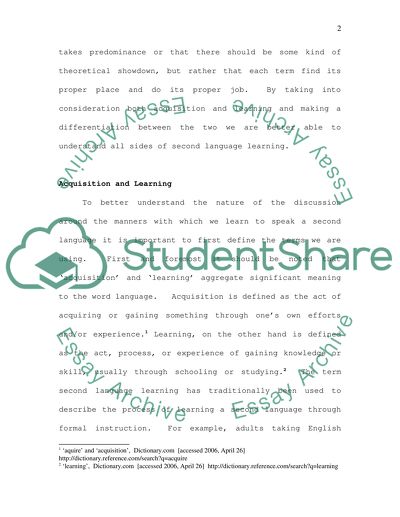The Importance of Distinguishing Between Acquisition and Learning in Essay. Retrieved from https://studentshare.org/miscellaneous/1501867-the-importance-of-distinguishing-between-acquisition-and-learning-in-second-language-performance
The Importance of Distinguishing Between Acquisition and Learning in Essay. https://studentshare.org/miscellaneous/1501867-the-importance-of-distinguishing-between-acquisition-and-learning-in-second-language-performance.


